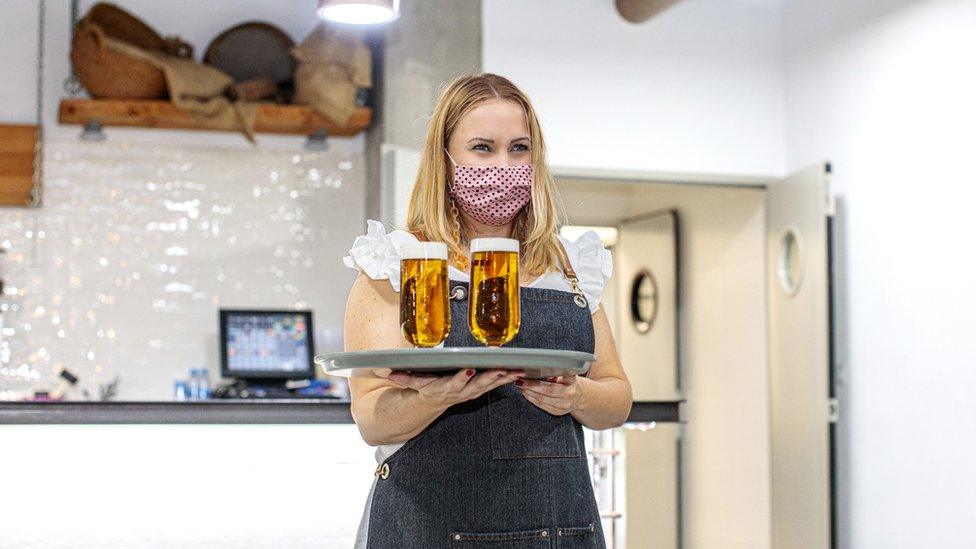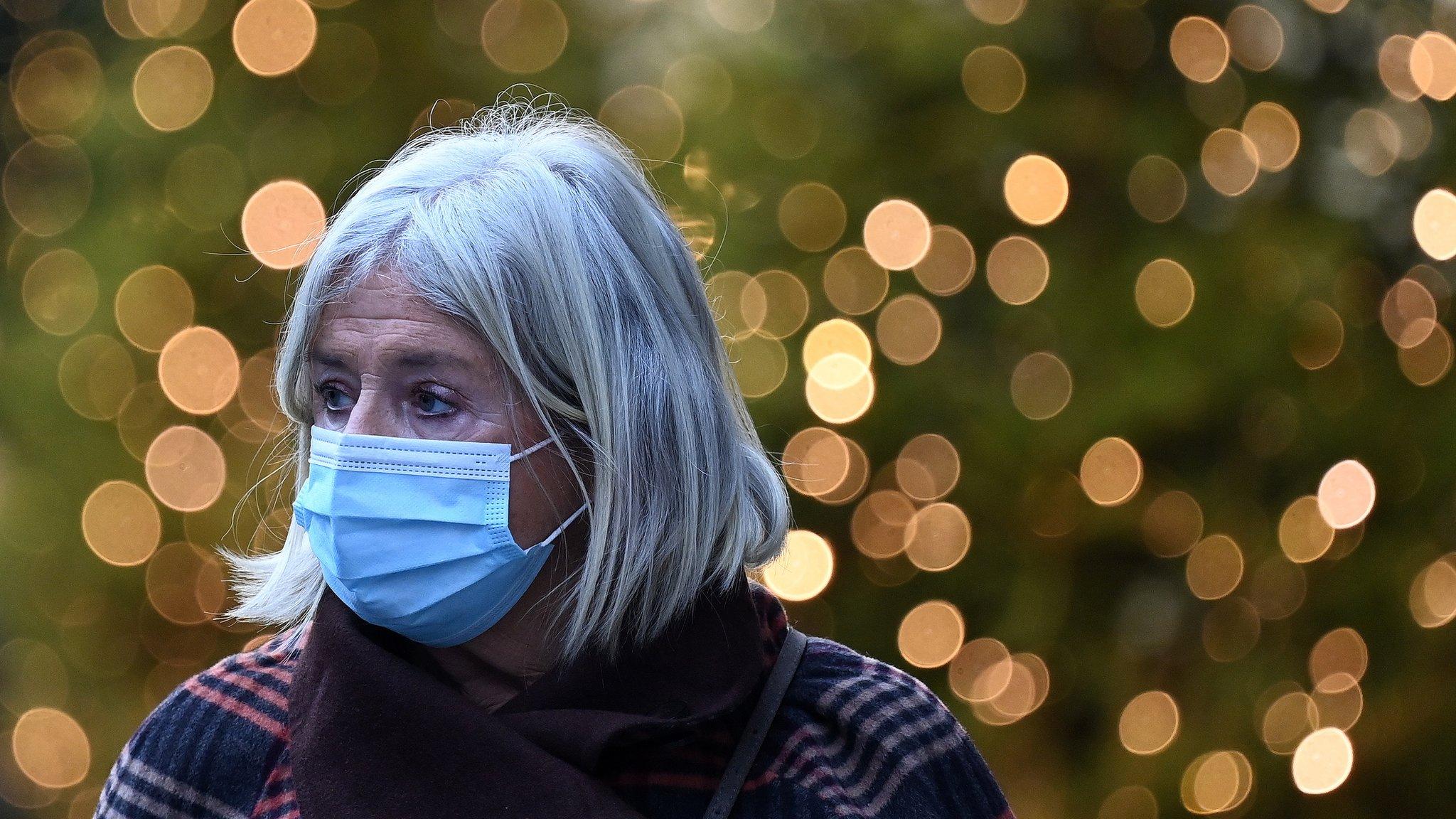Why doesn't Scotland have tougher Covid measures?
- Published
- comments

Businesses including those in hospitality have been the hardest hit by Covid restrictions
Scotland has the toughest Covid rules and guidance in the UK at the moment.
When the first minister, Nicola Sturgeon announced new measures in response to Omicron she said the Scottish government would have liked to go further.
Her deputy, John Swinney has since explained that might have meant tougher social distancing measures and limits on numbers in hospitality premises.
So, if they thought that might be necessary, why didn't they do it?
The Scottish government's answer is that it could not afford to compensate the businesses affected without financial support from the Treasury.
These businesses have already been amongst the hardest hit by Covid restrictions over the last two years.
During previous lockdowns and their aftermath, bars and restaurants were able to access furlough and other support funded by UK government borrowing.
In recent days, the devolved administrations in Scotland, Wales and Northern Ireland have been pressing the Treasury for access to new funding to enable them to deal with Omicron.
Treasury dispute
On Tuesday, just as Nicola Sturgeon was getting to her feet to announce Covid measures at Holyrood, the Treasury issued a statement promising extra money.
It said there would be additional cash to help the devolved administrations "progress their vaccine rollout and wider health response".
The first minister welcomed the news in Parliament but later tweeted to dispute that it was actually new.
Allow X content?
This article contains content provided by X. We ask for your permission before anything is loaded, as they may be using cookies and other technologies. You may want to read X’s cookie policy, external and privacy policy, external before accepting. To view this content choose ‘accept and continue’.
It turns out that it is early confirmation of what are called Barnett consequentials - Scotland's share of additional spending in England - on health and vaccinations.
We now know that is worth £220m. But the Scottish government said it had been expecting £268m and that it was money already "locked in" to their budget calculations.
Technically, Scottish ministers can spend it as they choose. In reality, it will almost certainly be spent on health.
That's what usually happens and it is what one Treasury source told me they would expect.
There would be an opposition outcry at Holyrood if it was not directed in that way.
It is not therefore money that is readily available to help hotels, bars, restaurants, shops and other businesses that are struggling.
Why can't Scotland act on its own?
At prime minister's questions, the SNP's Ian Blackford accused Boris Johnson of financial "smoke and mirrors".
The prime minister said Mr Blackford was voicing "synthetic indignation" because the Scottish government had received record funding - a block grant - of more than £41bn from the Treasury.
The Scottish Secretary, Alister Jack, said Holyrood ministers had failed to explain why they cannot afford to act on their own.
The Scottish Finance Secretary, Kate Forbes, has found £100m for business support by reprioritising cash from the budget for the current year.
Sturgeon: 'Limit household mixing to a maximum of three'
It's not clear how much more they could find if they had to, but the Scottish government argues that it does not have the spare cash required to back up tighter restrictions.
The first minister has said that effectively means "without responsible public health protections in England, there's no financial provision for such protections in Scotland, Wales or Northern Ireland".
She argues that is unfair and unacceptable and denies the charge from Scottish Conservative leader, Douglas Ross that she is "playing constitutional games" in a pandemic.
A similar row emerged in autumn 2020 when Boris Johnson announced an extension to the furlough scheme to support lockdown measures in England.
There was an outcry from devolved first ministers and from Mr Ross who argued that the same facility must be available, if required, in Scotland.
Eventually the scheme was extended UK-wide and the prime minister said it would "continue to be available wherever it is needed".
His official spokesperson added that "if other parts of the UK decide to go into measures which require direct economic support, of course we will make that available to them as we have done throughout the pandemic."
That was then.
Now the position is less clear.
Furlough and other UK-wide support was withdrawn as the pandemic eased.
As Omicron spreads rapidly and threatens a new emergency, it is not clear how and when it might be re-activated.
It does, however, appear that this will only happen if the UK government decides to bring in new restrictions in England.


- Published15 December 2021
